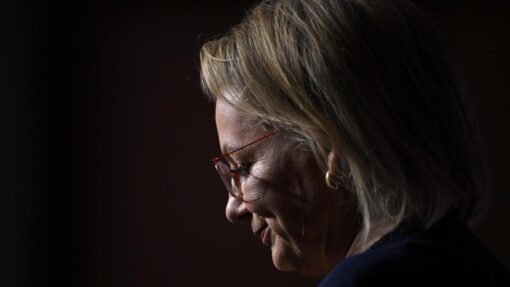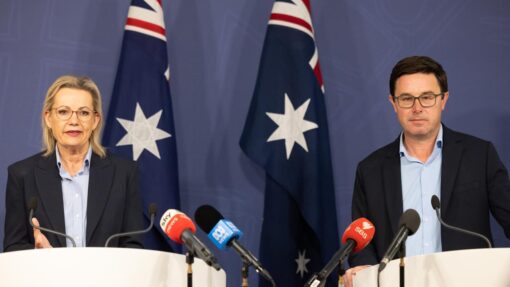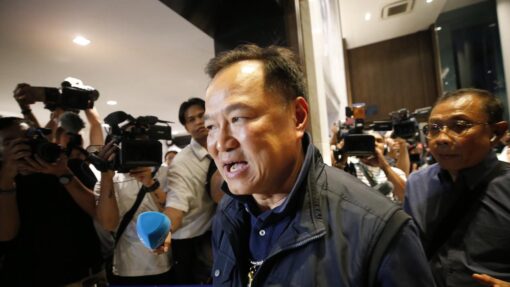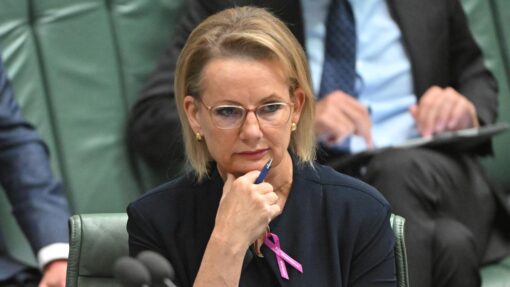Indigenous voice failure ‘unthinkable’, says Liberal MP
Dominic Giannini and Alex Mitchell |
The prime minister is being urged to correct his path towards enshrining an Indigenous voice to parliament in the constitution, amid warnings of dire consequences if its fails.
Shadow attorney-general Julian Leeser used a speech on Tuesday to outline a pathway for co-operation between the government and opposition for a successful referendum.
Mr Leeser said there needed to be a focus on outcomes to improve Indigenous education, health, housing and safety.
He said while some have suggested a voice would have raised the alarm ahead of a crime surge in Alice Springs, they ignored the pleas of community elders.
“There were Indigenous and community leaders sounding the alarm. They were calling out for help, but the government wasn’t listening,” Mr Leeser said.
“Voices presuppose that people listen. Yes, voices matter, but listening matters as well.
“I believe that requires a real change in how we approach these issues locally, regionally and nationally.”
He said there needed to be a move away from the “Canberra knows best” mentality, to listening to what communities were saying.
Mr Leeser said conservatives were not opposed to the principle of the voice, which he personally supports, but wanted proper processes and details to be laid out.
“What matters now is that we listen to each other and correct our course,” he said.
“We must get this right because the prospect of failure is unthinkable.”
The bill outlining the wording will be put before parliament in late March, and the process will be finalised in about June, once parliamentary committees have been given time to report back.
The government has flagged the referendum will be held between October and December.
There has been criticism that allowing the voice to advise ministers as well as the parliament could provide more scope for the constitutional change to be challenged in the High Court.
But Attorney-General Mark Dreyfus said the intention was for it to “be able to speak to the parliament and to the executive”, as called for in the Uluru Statement.
“People have been litigating questions about our constitution since Federation, and the fact that it’s possible to point to possible constitutional litigation I don’t think should deter anyone,” he told ABC radio.
Meanwhile, social sector organisations are banding together to support a constitutionally enshrined Indigenous voice to parliament, saying it would help Australia take a step towards a better future.
The Australian Council of Social Service, Oxfam, the Fred Hollows Foundation and First Nations advocacy organisation ANTAR are launching the “allies for Uluru coalition”.
A coalition of Australia’s biggest sporting codes, including the NRL and AFL, will also reportedly band together to support the “yes” campaign, although none would immediately confirm they would back the voice.
A Rugby Australia spokesperson said they were “broadly supportive” of the voice, adding that they would continue working with stakeholders on a more detailed position.
The AFL said it was also in a consultation process, and its Aboriginal and Torres Strait Islander Advisory Council would make its recommendation to the commission.
One Nation leader Pauline Hanson said the voice flew in the face of the principle of people being “equal before the law” and that the Liberals should oppose it.
AAP


